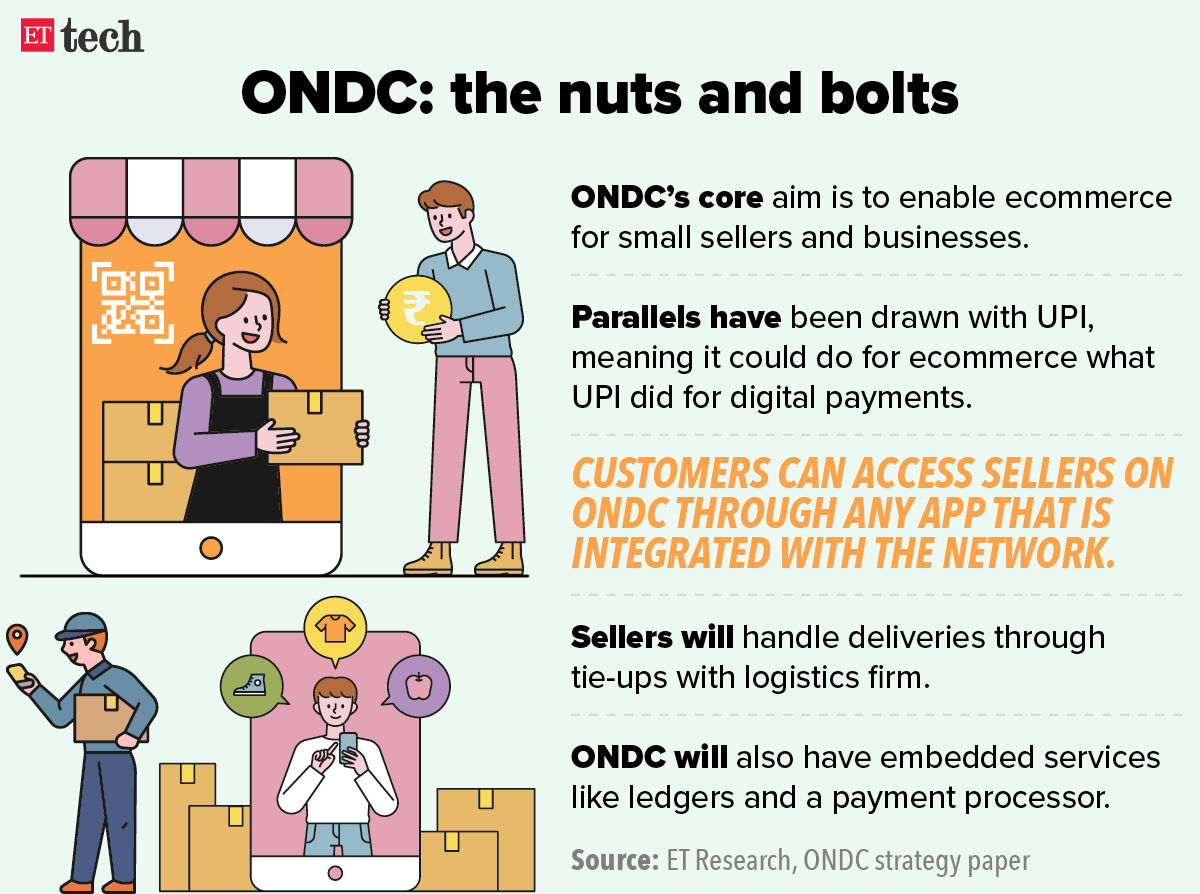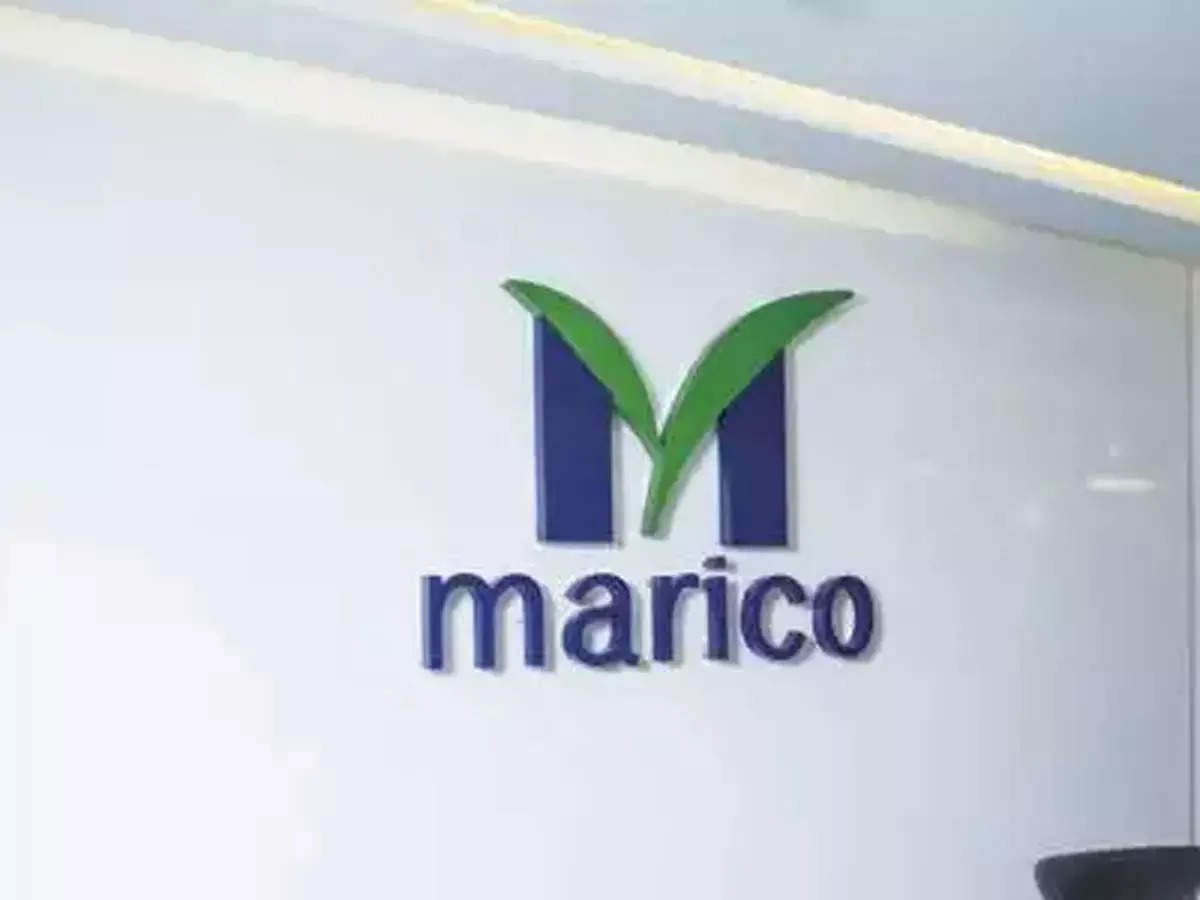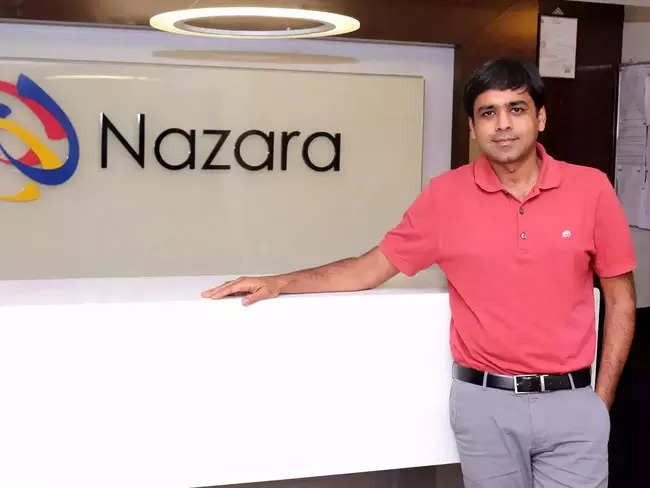Also in this letter:
■ Gaming rules should be ‘light touch’ and protect players, say firms
■ Meta to expand SME loan plan; launches EMI scheme for advertisers
■ Marico plans Thrasio-style business in online push
Programming note: There will be no edition of ETtech Top 5 on August 31 and ETtech Morning Dispatch on September 1 on account of Ganesh Charturthi. Best wishes to you and your family!
Exclusive: NPCI set to acquire 9-10% stake in ONDC
The National Payments Corporation of India (NPCI), which runs the Unified Payments Interface (UPI) is close to picking up a 9-10% stake in the Open Network for Digital Commerce (ONDC) for around Rs 10 crore, people briefed on the matter told us
‘UPI of ecommerce’: ONDC is a government initiative that aims to curb the dominance of foreign ecommerce giants. Experts have said it could do for ecommerce what UPI has done for digital payments in India — expand its reach and make it accessible at the grassroots level.
Also Read: ETtech Explainer | ONDC: India’s bid to break ecommerce monopolies
Approvals are already in place and the process is likely to be completed in the next 10 days, one of the sources said.

The National Securities Depository Ltd (NSDL) and Bank of India are also expected to acquire stakes in ONDC soon.
B2B foray: ONDC, which is preparing for a public launch in September, is laying the groundwork to enable business-to-business (B2B) transactions on the network. Two startups — B2B trade platform Rapidor and a retail tech firm Signcatch — are helping with this.
A person closely associated with the platform said its B2B vertical could transform the way the retail market operates in India.
Gaming rules should be ‘light touch’ and protect players, say firms

As the government takes steps to introduce regulations for online gaming, industry associations cautioned that it was important to ensure that the rules were “light touch” and kept player protection at their core.
Catch up quick: We reported earlier this month that an inter-ministerial task force had suggested that the ministry of electronics and IT amend the Information Technology Act, 2000 to include rules for the gaming sector.
Yes, but: “There is a need to ensure that legitimate operators are protected and the illegitimate ones are weeded out,” said Sameer Barde, CEO, E-Gaming Federation (EGF).
He added that the guidelines should be balanced, “otherwise, gamers will turn to fly-by-night operators”.
Over the past few years, there has been some amount of self-regulation, at least among the larger operators, and some rules around geo-fencing and KYC norms are already in place.
While companies have welcomed the move to introduce regulations, they are concerned that too much regulation could hamper growth.
Huge market: India is currently home to about 420 million gamers and 400 gaming companies, according to a study by KPMG, making it one of the fastest growing markets globally. A recent report by BCG and Sequoia India said that the industry currently generates $1.5 billion in revenue and this is slated to grow to $5 billion by 2025.
ET Ecommerce Index
We’ve launched three indices – ET Ecommerce, ET Ecommerce Profitable, and ET Ecommerce Non-Profitable – to track the performance of recently listed tech firms. Here’s how they’ve fared so far.
Meta to expand SME loan plan; launches EMI scheme for advertisers

Meta will expand its loan-for-small-businesses programme in India from the current 200 towns to almost the entire country, effective immediately, the company’s vice president and managing director of Facebook India Ajit Mohan told us.
EMI scheme: Meta has also announced the launch of an India-first equated monthly instalment (EMI) scheme for advertisers on its platforms, including Instagram.
The scheme will allow companies, especially small businesses, to spread the payment of their ad spending over three months.
Meta will help micro, small and medium enterprises secure business loans which the firms would be free to use as they wish to, Mohan said in an interview. The company has tied up with loan disbursal platforms FlexiLoans and Indifi for the initiative and would keep an arm’s length with the business.
The programme will now be expanded to 19,000 pin codes, he said.
TWEET OF THE DAY
Marico plans Thrasio-style business in online push

Consumer goods company Marico is attempting to build a Thrasio-style business through which it will scale direct-to-consumer brands by giving them a common tech platform, supply chain and customer relations management.
US-based Thrasio Holdings pioneered this business model – also called ecommerce roll-up – in 2018.
Onlish push: This is part of Marico’s wider strategy to enter new segments, especially in the online space.
The owner of the Parachute and Saffola brands has acquired Just Herbs, Beardo and True Elements in the direct-to-consumer space and announced plans to enter more categories by buying brands. It aims to build a Rs 450-500 crore portfolio of digital brands by the end of the next fiscal year through a mix of organic and inorganic growth.
At present, each of its digital brands operates as a separate unit. These brands posted annualised revenue of Rs 180-200 crore in the last fiscal year.
Hyperpure could become bigger than food delivery, says Zomato

During its first annual general meeting (AGM) since going public, food delivery major Zomato said its business-to-business (B2B) supplies vertical Hyperpure could be as big as or even bigger than its food delivery business.
Adjusted revenues of Hyperpure came in at Rs 540 crore in FY22, while that of Zomato’s food delivery business stood at Rs 4,760 crore.
The company also reiterated its focus on growing its topline and reassured shareholders about its path to profitability.
“I think overall at a company level, we would say roughly about six months to one year is when we think we should become breakeven without Blinkit,” chief financial officer Akshant Goyal said.
Share price concerns: Shareholders quizzed the management about the company’s share price outlook, how it plans to use its cash, its path to profitability, and its outlook on growth and future plans. A common concern was the rapid decline in Zomato’s share price and how it might recover.
Zomato said it was focused on generating cash flows and would thereafter consider either returning cash to investors or looking at new avenues for investments “if that makes most sense”.
Other Top Stories By Our Reporters

Nazara buys US firm WildWorks: Gaming and sports media company Nazara Technologies Limited has acquired WildWorks, a leading children’s interactive entertainment company in the US. Nazara will acquire 100% of the company and its IP from existing shareholders in an all-cash transaction.
MeitY to give startups ‘all possible support’: The Ministry of Electronics and Information Technology (MeitY) is committed to providing all possible support to startups, especially in their growth stages, the ministry’s secretary Alkesh Kumar Sharma said.
Global Picks We Are Reading
■ Who pays for an act of cyberwar? (Wired)
■ Flicking the kill switch: governments embrace internet shutdowns as a form of control (The Guardian)
■ China blazes hazy new trail to tame internet’s algorithms (WSJ)
























